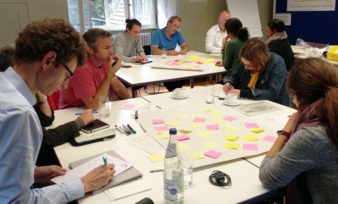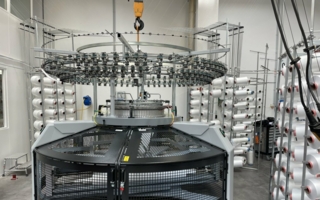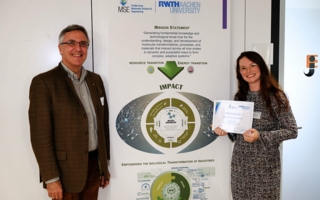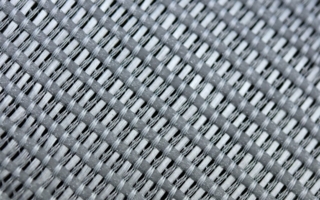17/12/2019 – Moving against fast fashion — auf Deutsch lesen
DBU project encourages young people to consume textiles sustainably
Young people aged between 14 and 19 years tend to be seduced by fast fashion. DBU is pouring EUR 270,000 into the project with a view to improving the situation.
A T-shirt for three pounds, a pair of shoes for a tenner, and a pair of socks for a quid – lots of fashion chains lure customers with incredibly cheap prices. Such products are often sub-standard and are produced abroad in questionable working conditions that have a negative social and ecological impact. Young people between 14 and 19 years of age are most likely to succumb to the overwhelming appeal of fast fashion.
In a recently launched project, the University of Ulm and the Technical University of Berlin (TU Berlin) are exploring ways, through various activities, to encourage young people to consume textiles in a more sustainable manner. At the same time, the project will investigate whether young people can then transfer changes in their behaviour to other areas. The findings will be used to create teaching and learning formats for all school types. The German Federal Environmental Foundation (DBU) is contributing expertise and funding to the order of EUR 270,000.
Fast fashion with a negative impact
“Fast fashion is all about cheap and low-quality textiles that are discarded after a short period of time,” states Project Manager Prof. Dr. Martin Müller from the University of Ulm. Such cheap production abroad is made possible by low wages and hazardous conditions for both humans and the environment. It leads to water and air pollution, the widespread use of pesticides, human rights violations and increased CO2 emissions. “We urgently need to change our consumer behaviour. Although many people are aware of the poor conditions, they keep on buying cheap clothing,” Müller stresses.
Creating stronger awareness for sustainability
Given that it is mainly young people who are enticed by cheap products, the project is targeting specifically this age group. “In view of the current trend towards fast fashion, there is a strong need to raise awareness particularly among young people so that they fully understand the environmental and social impact of fashion consumption,” states Dr. Thomas Pyhel, a DBU expert in environmental education.
Students participate actively
Six schools in Berlin and Ulm are taking part in the project which will explore how the active participation of students can raise their awareness of sustainability. It is hoped that participatory experiments, carried out by school children and researchers, will lead to the development of concepts for the sustainable consumption of clothing. Possible events include, for example, clothes swapping parties, the creation of textiles workshops or Zero Waste Design workshops that aim to develop clothing with no waste. Also involved in the project’s implementation are several companies specialising in sustainable textiles production. Based on the findings of the project, plans are in the pipeline to develop appropriate teaching and learning formats for various school types. The results shall also be channelled into the teacher training programmes of both universities.




